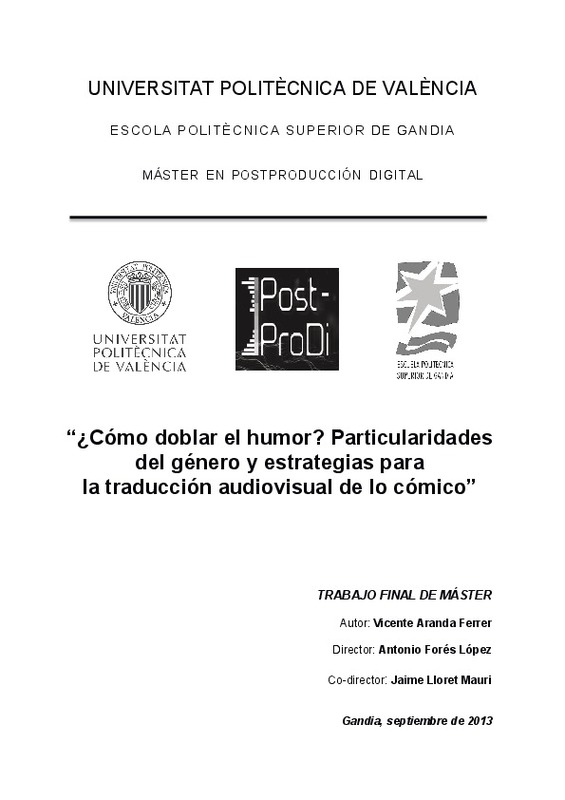JavaScript is disabled for your browser. Some features of this site may not work without it.
Buscar en RiuNet
Listar
Mi cuenta
Estadísticas
Ayuda RiuNet
Admin. UPV
¿Cómo doblar el humor? Particularidades del género y estrategias para la traducción audiovisual de lo cómico
Mostrar el registro completo del ítem
Aranda Ferrer, V. (2013). ¿Cómo doblar el humor? Particularidades del género y estrategias para la traducción audiovisual de lo cómico. Universitat Politècnica de València. http://hdl.handle.net/10251/36044
Por favor, use este identificador para citar o enlazar este ítem: http://hdl.handle.net/10251/36044
Ficheros en el ítem
Metadatos del ítem
| Título: | ¿Cómo doblar el humor? Particularidades del género y estrategias para la traducción audiovisual de lo cómico | |||
| Autor: | Aranda Ferrer, Vicente | |||
| Director(es): | ||||
| Entidad UPV: |
|
|||
| Fecha acto/lectura: |
|
|||
| Resumen: |
La investigación que se desarrolla en la presente memoria constituye el Trabajo final del
Máster en Postproducción Digital cursado en el Campus de Gandia de la Universitat Politècnica
de València. El objetivo de este ...[+]
The research developed in this report represents the Master Thesis, as a requirement
for obtaining an MA degree in Digital Postproduction at the Gandia Campus of the Universitat
Politècnica de València. The aim of ...[+]
|
|||
| Palabras clave: |
|
|||
| Derechos de uso: | Reconocimiento - No comercial - Sin obra derivada (by-nc-nd) | |||
| Editorial: |
|
|||
| Titulación: |
|
|||
| Tipo: |
|
recommendations
Este ítem aparece en la(s) siguiente(s) colección(ones)
-
EPSG - Trabajos académicos [5004]
Escuela Politécnica Superior de Gandia





![[File]](/themes/UPV/images/mime.png)


